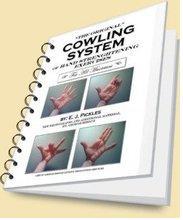MUSIC TEACHING SOFTWARE:
HOW and WHAT to practice.
Here is an overview of the most comprehensive music teaching software I've seen yet - SMARTMUSIC
Getting the right MUSIC TEACHING SOFTWARE will firstly show you HOW to practice music, as well as what to practice.
And I'm flat-out totally impressed with how SMARTMUSIC handles both the "how" and the "what".
WYNTON MARSALIS is a spokesperson for this software, which is endorsement enough for anyone.
Let's watch him present some specific features:
and another:
Hey, this IS Wynton Marsalis, let's watch him play!
Did you notice that, unlike a lot of music teaching software out there, SMARTMUSIC sounds really good! This is an obvious incentive to practice and play.
Believe it or not this entire suite of music teaching software apps costs $36 a year! [that's the 'student' rate, for a teacher, it's $140 per year] an astonishing value for a collection of 50,000 possible drills and practice routines and access to tens of thousands of works of music - materials equivalent to TEN or more years of music education, on EVERY major instrument!
Here is the SMARTMUSIC music teaching software site - click this link to find out more and to order:
[DISCLAIMER Just so you know. I am not receiving any compensation of any kind whatsoever for this review.. As a matter of fact, I'm enrolling in this myself!]
Now, I'd like to discuss two related subjects:
Firstly: being able to recognize what note is being played or sung, and call it by its' name [actually its' letter: a-b-c-d, or do-re-me, etc.], and Secondly, being able to recognize how far 'away' one note is from another note.
[Almost right away, you'll see that it's almost impossible to isolate these one from another, and so you'll see that reflected in the excercizes and drills in these various practice sites which I'm linking you to.]
This first skill is developed by the activity we call "ear training". For many, the ultimate goal of ear training is to acheive what is known as "perfect pitch" or "absolute pitch"; The ability to immediately recognize what note you are hearing and call it, without reference to an instrument, etc.
The second ability, [which you will see is also addressed in ear training] - recognizing how "far away" one note is from another - is referred to as "relative pitch".
"Relative pitch" is actually much easier to achieve for most people, in fact you probably already have it to a large degree. You use it every time an unfamiliar song comes on and you "hear" when the end is approaching, Why do you "know" it's the end?
Well, there are a lot of technical terms to describe this, but for now we can say that you are able to recognize innately that the song came back around to the same pitch it started from, and it ended there. That is actually "relative pitch perception" in action.
Now also, when we enter the arena of: "how far 'away' is one note from another?" we have another technical term - "an INTERVAL" and, we are getting into MUSIC THEORY.
MUSIC THEORY is [my definition]: "What name is given to a group of notes played together?" [known as a chord], and; "What name is given to a group of notes played one after the other?" [known as a scale] and "How do all these things work together to produce music?"
You will see that come up very early on in these online music theory games. Once you have a good recognition of the notes individually, you will be called upon to recognize them in combination: INTERVALS, CHORDS and SCALES.
A good or great musician knows these well, of course.
[more to come on MUSIC TEACHING SOFTWARE]
Also highly recommended, below:
Would you like to know more?
Please read these unsolicited testimonials:
-----------------
FROM A BASS PLAYER:
"My fingers actually DO what my brain tells them to do, WITHOUT getting confused."
~ Anthony Jerome Smith,
35-year veteran bass player.
-----------------
FROM A PIANIST:
"In 1976, my teacher gave me his copy of all the exercises, whereupon I made xeroxed pages to put in a binder.
"My teacher was amazed at my progress that in a year I could play, for example, the prelude #17 of Chopin!
~ "RPN58"
(from a pianists' discussion board in England, 2006)
-----------------
FROM A GUITARIST:
"I was introduced to the Cowling System in the 1980's by a violinist in his seventies, who had amazing dexterity on his instrument for HIS age.
"Through the use of the COWLING SYSTEM, I went from "amateur" to an "A" level in music in a very short number of years.
"I have been using the exercises continuously since my friend gave them to me and believe me - THEY WORK."
~ Don Wills
Guitarist, Great Britain
-----------------
FROM A VIOLINIST:
"I must say I am highly delighted with the way my fingering has improved since I commenced your hand strengthening exercises.
"Recently, I became very depressed about my playing and almost decided to give it up, but now I feel it's a pleasure, thanks to the Cowling System."
~ from:"THE VIOLINIST" Magazine,December, 1924
-----------------
And - I'd love to see YOUR testimonial on this list!
YOU can truly master your instrument, IF you diligently do "THE ORIGINAL" COWLING SYSTEM of Hand Strengthening Exercises for Musicians.
Click this link for further info,
Send me the e-book! [$22.50! -- click below:]








